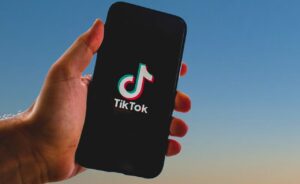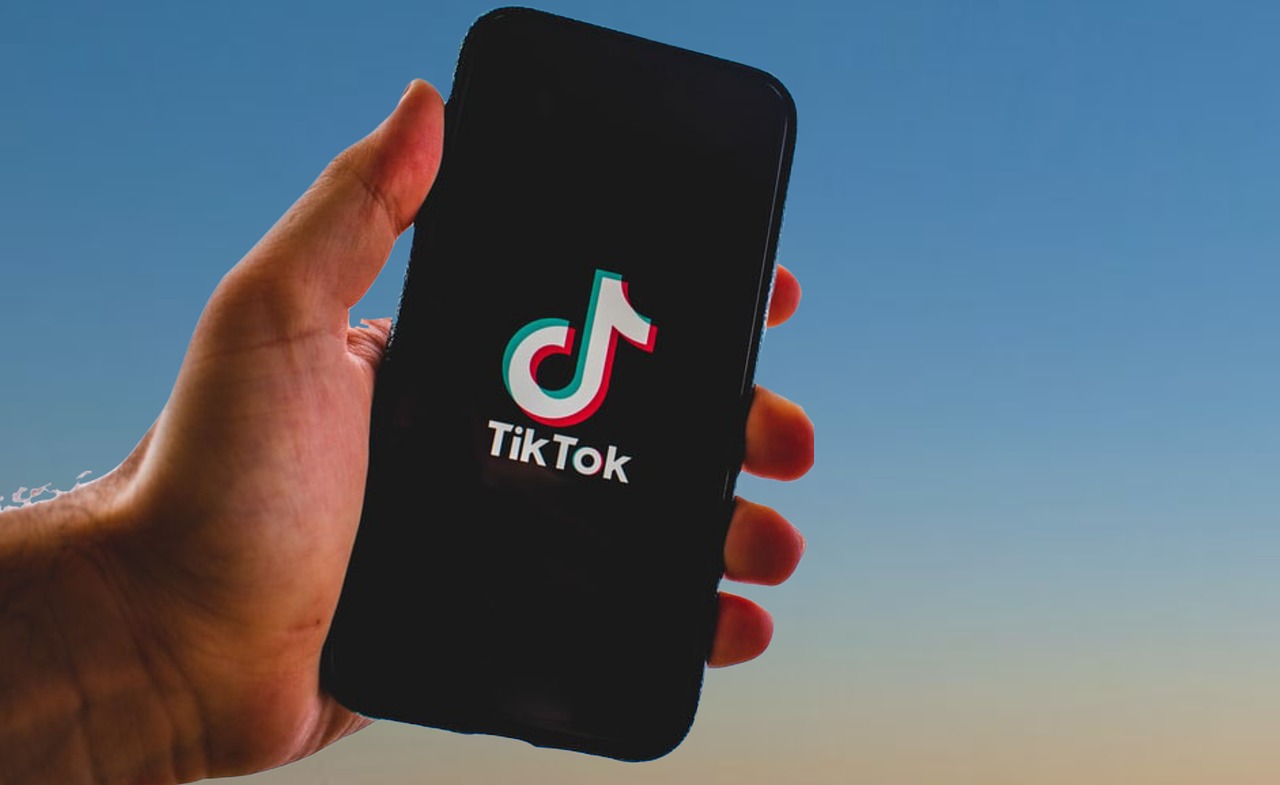TikTok Bans and National Security: Can the U.S. Actually Ban an App?
By: Camila Sidiqi

Just when we thought the fear of losing TikTok was behind us, here we are again, facing that same uncertainty. With a September 17th deadline looming, ByteDance has been ordered to sell TikTok to an American company or risk being banned in the U.S.[1] The clock is ticking, and while some dismiss this as another political stunt, others are wondering: Can the government really do this? Does this not violate my First Amendment rights? If you are asking those questions, you are not alone—I have been thinking the same thing. So let me break it down: does the U.S. government actually have the power to ban an app, and what does this mean for the future of digital platforms?
The Government’s Long Battle with TikTok
This is not the first time the U.S. has attempted to regulate or ban TikTok. Concerns over the app date back to the first Trump administration, primarily focused on its Chinese parent company, ByteDance, and potential national security risks. In 2020, President Donald Trump issued an executive order attempting to force ByteDance to sell TikTok’s U.S. operations, citing fears that user data could be accessed by the Chinese government.[2] There were discussions about selling TikTok to American companies such as Oracle and Walmart, but negotiations failed.[3] Additionally, federal courts blocked Trump’s ban, ruling that it exceeded executive authority and raised serious First Amendment concerns.[4]
When President Joe Biden took office, he revoked Trump’s executive order[5] but did not exactly welcome TikTok with open arms. Instead, he launched a broader review of foreign-owned apps that might pose security threats.[6] In 2023, he took a more measured approach, signing a law banning TikTok from government devices[7]—a move that many states soon followed. For instance, the state of Montana attempted to ban TikTok entirely, but a federal judge struck down the law, ruling that it violated free speech rights and overstepped state authority.[8]
Now, TikTok’s fate depends on an upcoming deadline. If ByteDance does not find an American buyer by September 17th, the original nationwide ban would go into effect.[9] His executive order followed a unanimous Supreme Court ruling in January that upheld a federal law requiring ByteDance to either sell TikTok or face a ban.[10] The day after that ruling, TikTok briefly went offline in the U.S., only to be restored when Trump promised to stall the ban.[11] While this decision has drawn criticism, it has yet to be challenged in court.
The First Amendment Problem
One of the biggest legal obstacles to banning TikTok is the First Amendment, which protects freedom of speech and expression. TikTok is not just an app—it is a global platform where millions of people share their thoughts, creativity, and political views. Banning it outright would not only affect influencers and content creators, but it would also set a dangerous precedent for government control over digital speech.[12]
Historically, the Supreme Court has ruled that the government cannot suppress speech without a compelling reason.[13] National security concerns can justify certain restrictions, but courts typically require substantial evidence that such a restriction is narrowly tailored to that end.[14] A blanket TikTok ban? That is a difficult argument to make.
This debate is not entirely new. In 2020, the Trump administration attempted to ban WeChat, another Chinese-owned app, for similar national security reasons.[15] The United States District Court for the Northern District of California blocked the ban, ruling that it likely violated the First Amendment.[16] The court emphasized that WeChat was an essential communication tool, particularly for Chinese-speaking communities in the U.S., and that the government failed to prove that banning it was the least restrictive way to address security risks.[17]
The same reasoning could apply to TikTok. If the government were to ban it, officials would have to prove that no other solution—such as increased regulation—would be sufficient. Given the WeChat ruling, a TikTok ban could almost certainly face significant legal challenges.
Are There Better Alternatives?
If an outright ban is legally questionable, what other options does the government have? Rather than banning TikTok, some argue that stronger data privacy laws could address the same security concerns without infringing on free speech.[18] The U.S. currently lacks a comprehensive federal data privacy law[19], which gives social media companies, including TikTok, broad discretion over how they collect and store user data. If the U.S. followed in the footsteps of the EU’s General Data Protection Regulation (the “GDPR”), it could impose stricter rules requiring companies to store American user data only when necessary for a specified purpose, limit data sharing with foreign entities, and undergo regular security audits.[20]
Another alternative is limiting TikTok’s use on government devices, a measure that has already been implemented at both the state and federal levels.[21] More than thirty states have banned TikTok from government-issued phones and networks due to security concerns.[22] This approach addresses potential risks without restricting private citizens from using the app. Unlike a nationwide ban, which could raise First Amendment concerns, these targeted restrictions provide a more balanced solution.
The Bigger Picture
The debate over TikTok is not just about one app—it is about the broader issue of government power over digital platforms. If TikTok is banned, what stops future administrations from targeting other apps or websites under similar justifications? Where do we draw the line between protecting national security and preserving free speech?
Ultimately, while the government has a legitimate interest in addressing security risks, a full-scale ban on TikTok is likely to face intense legal scrutiny.[23] Instead of taking the unprecedented step of banning an entire social media platform, policymakers should focus on measured solutions—whether through stricter data regulations or targeted restrictions—that prioritize both national security and digital freedom. Because at the end of the day, this is not just about TikTok. It is about the future of the internet as we know it.
Link to image source:
https://pixabay.com/photos/tiktok-tik-tok-app-smartphone-5390055/
[1] Liv McMahon, Trump Confirms Further Delay to TikTok Ban or Sale Deadline, BBC (June 19, 2025), https://www.bbc.com/news/articles/cd78xljd71yo.
[2] Executive Order on Addressing the Threat Posed by TikTok, White House (Aug. 6, 2020), https://trumpwhitehouse.archives.gov/presidential-actions/executive-order-addressing-threat-posed-tiktok/.
[3] David McCabe et. al., TikTok Deal Trips Over U.S.-China Power Struggle, N.Y. Times (Sept. 21, 2020), https://www.nytimes.com/2020/09/21/technology/tiktok-bytedance-deal-walmart-oracle.html.
[4] See generally TikTok Inc. v. Trump, 507 F. Supp. 3d 92 (D.D.C. 2020); Marland v. Trump, 498 F. Supp. 3d 624 (E.D. Pa. 2020).
[5] Katie Rogers & Cecilia Kang, Biden Revokes and Replaces Trump Order That Banned TikTok, N.Y. Times (June 9, 2021), https://www.nytimes.com/2021/06/09/us/politics/biden-tiktok-ban-trump.html.
[6] Id.
[7] See generally Consolidated Appropriations Act, 2023, Pub. L. No. 117-328, 136 Stat. 4450.
[8] Bobby Allyn, Federal Judge Blocks Montana’s TikTok Ban Before It Takes Effect, NPR (Nov. 30, 2023), https://www.npr.org/2023/11/30/1205735647/montana-tiktok-ban-blocked-state.
[9] Lauren Keenan, TikTok Must Sell by Sept. 17 or Will ‘Go Dark’ in US, Commerce Secretary Says, Straight Arrow News (Jul. 24, 2025), https://san.com/cc/tiktok-must-sell-by-sept-17-or-will-go-dark-in-u-s-commerce-secretary-says/.
[10] Id.
[11] Id.
[12] Ashley Gorski & Patrick Toomey, Banning TikTok is Unconstitutional. The Supreme Court Must Step In., ACLU (Jan. 15, 2025), https://www.aclu.org/news/national-security/banning-tiktok-is-unconstitutional-the-supreme-court-must-step-in.
[13] See Gitlow v. New York, 268 U.S. 652, 667-68 (1925); see also Geoffrey R. Stone & Eugene Volokh, Freedom of Speech and the Press, Nat’l Const. Ctr., https://constitutioncenter.org/the-constitution/amendments/amendment-i/interpretations/266 (last visited Apr. 4, 2025).
[14] Turner Broad. Sys., Inc. v. Fed. Commc’ns Comm’n., 520 U.S. 180, 181 (1997).
[15] U.S. WeChat Users All. v. Trump, 488 F. Supp. 3d 912, 916 (N.D. Ca. 2020).
[16] Id. at 929-30.
[17] Id.
[18] US: Rather Than Ban TikTok, the Best Way to Protect App Users is to Strengthen Privacy, Transparency, and Security Protections Online, Freedom House (Jan. 16, 2025), https://freedomhouse.org/article/us-rather-ban-tiktok-best-way-protect-app-users-strengthen-privacy-transparency-and.
[19] Consumer Data Privacy Laws, Bloomberg Law, https://pro.bloomberglaw.com/insights/privacy/consumer-data-privacy-laws/#how-privacy-laws-work (last visited Apr. 4, 2025).
[20] Id.; see also Ben Wolford, What is GDPR, the EU’s new data protection law?, GDPR.EU, https://gdpr.eu/what-is-gdpr/ (last visited Apr. 4, 2025).
[21] See Memorandum for the Heads of Executive Departments and Agencies, M-23-13 (Feb. 27, 2023); see also Cailey Gleeson, These 39 States Already Ban TikTok From Government Devices, Forbes (Mar. 12, 2024), https://www.forbes.com/sites/caileygleeson/2024/03/12/these-39-states-already-ban-tiktok-from-government-devices/.
[22] Gleeson, supra note 22.
[23] Madison Minges, National Security and the TikTok Ban, American Univ. Wash. D.C. (Jan. 23, 2025), https://www.american.edu/sis/news/20250123-national-security-and-the-tik-tok-ban.cfm#:~:text=The%20TikTok%20case%20underscores%20the,to%20geopolitical%20rivals%20like%20China.
